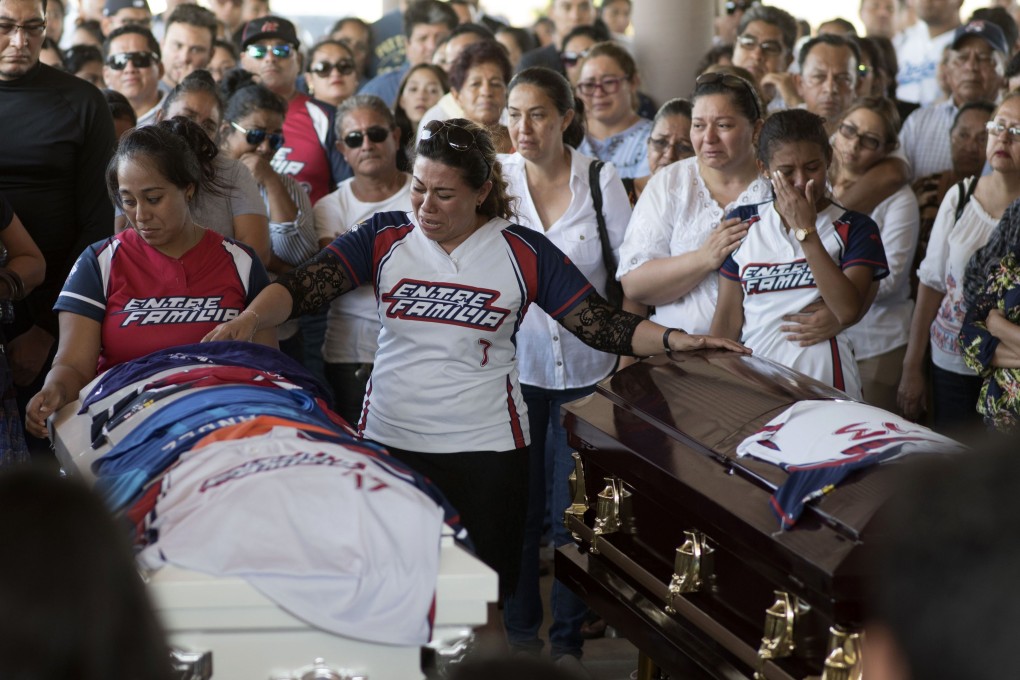Mexico’s president of ‘hugs, not bullets’ faces outcry over country’s record homicide rate
- The first quarter of the year was the most violent in recent Mexican history
- The latest high-profile case of violence came over the Easter holiday weekend when gunmen killed 13 people, including a one-year-old child

He promised to be the president of “hugs, not bullets” and to bring peace to Mexico after years of surging criminal violence.
But Andres Manuel Lopez Obrador is facing a public outcry after a massacre at a birthday party that has revived a sense that the country is spinning out of control.
The attack stood out for its brutality. Gunmen burst into the birthday celebration in the southern state of Veracruz on Friday night, opening fire and killing five women, seven men and a 1-year-old boy, according to the state security chief, Hugo Gutierrez.
But the shooting was just one sign of intensifying violence around the country.
Over the weekend, the federal government released new data showing that the first quarter of the year was the most violent in recent Mexican history.
A total of 8,493 people were killed, a 9.6 per cent increase over the same period in 2018.